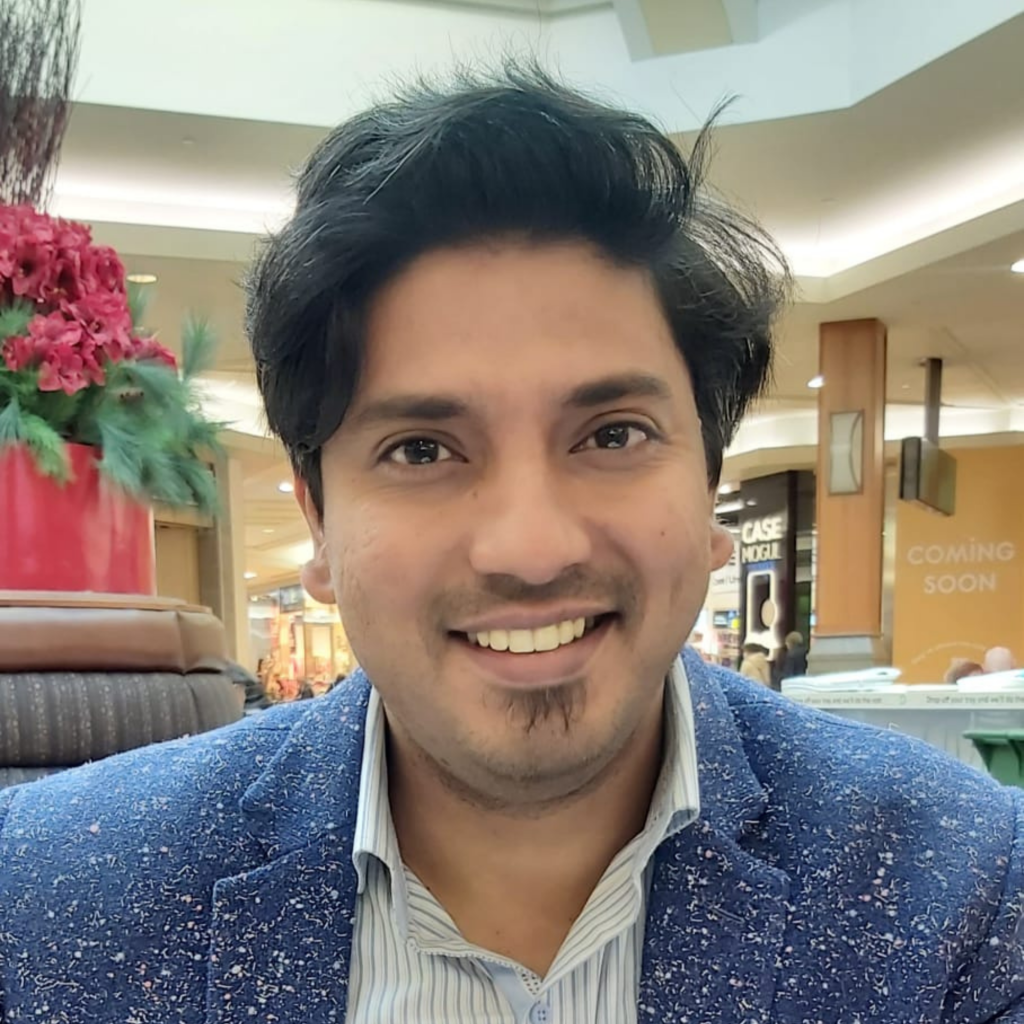2022 TAGSA Award Recipient
The recipient of the TAGSA Award for an Outstanding Conference Session Led by a Graduate Student for 2022 is Adil Arshad from the University of Calgary for his session titled: Engaging Graduate Students as Partners in Educational Development: Lessons from a Survey of Canadian TLCs. In Adil’s session, he shared his experience of using a ‘students as partners’ approach in Teaching and Learning Centres (TLCs) when working with graduate educational developers. As described by an excerpt of Adil’s abstract: “Recognizing the value of incorporating students’ voices and experiences in the development and facilitation of educational development programs (Felten et al., 2019), many Canadian TLCs are engaging graduate students as partners mainly through part-time positions (paid or volunteer). While some of these efforts are reported and discussed in the form of institutional case-studies (Marquis et al., 2016; Roy et al., 2021), there is little research at a national level that maps the current practices of engaging graduate students in educational development work at TLCs, particularly in the Canadian context.”
Congratulations to Adil! Adil was able to share with TAGSA some of his experiences and insights on teaching and learning during his time as a graduate student.
- Please tell us a bit about yourself.
I am a third-year doctoral candidate in the Adult Learning program at the University of Calgary, and I have over ten years of experience in the teaching and learning of higher education in various educational and cultural contexts. My doctoral research focuses on the narratives and experiences of international teaching assistants for becoming an effective instructor. I hold an MA in International Higher Education from Boston College and an EdM in Science Education from Boston University. During the past three years at the University of Calgary, I have been working as a Teaching Assistant for graduate and undergraduate courses and I have also supported a few SoTL projects as a research assistant in collaboration with faculty at the Werklund School of Education and the Taylor Institute of Teaching and Learning (TI).
- What is the most important aspect of the research you presented at STLHE that you would like to share?
Our research contributed to the ongoing discussion of increasing student partnership and agency in higher education teaching and learning. Our research was particularly unique in the sense that it aimed to explore how teaching and learning centers (TLCs) in our national context (Canada) may engage graduate students as partners and agents in academic development activities. This focus on exploring the national landscape offered a wide range of perspectives on what is and what works in TLCs’ partnerships with graduate students.
- What kind of support have you received for this research project?
This research project would not have been possible without the thoughtful leadership and guidance of Dr. Kim Grant. Dr. Grant has been a PI for this project and works as an Educational Development Consultant at TI, University of Calgary. Dr. Grant’s generous feedback and advice not only kept this research on track but also enabled me to grow, both as a graduate researcher and as a prospective educational developer. Additionally, this research project was supported by the generous funds provided by TI and the Educational Developers Caucus (EDC).
- How did you first get involved in the Scholarship of Teaching and Learning (SoTL)?
I worked on my first SoTL project as a graduate student at Boston University. I did an independent study where I assisted Dr. Peter Garik and colleagues in teaching graduate-level immersion courses to K-8 science teachers from the Greater Boston Area. I also helped with the research component of the course where we conducted mixed-method research to study the impact of immersion courses on k-8 in-service teachers’ understanding of implementing reformed teaching practices. I learned a few important lessons from this first SoTL experience, and since then, I have contributed to several SoTL projects in various post-secondary settings.
- What did you learn from the STLHE Conference this year?
This was my first STLHE participation and I was deeply impressed by the quality of presentations and interactive sessions offered at the conference. I got an excellent opportunity to learn about recent trends in the field of educational development, and teaching and learning in higher education. Additionally, I think I made some valuable connections with senior and experienced colleagues which I think would help me immensely as I continue to craft my career in educational development.
- What is something you have gained/learned from engaging in SoTL?
I have learned the value of being intentional and purposeful in my teaching practice. Our careful examination of overt and covert aspects of student learning and experiences through research allows us to understand what works and what doesn’t work in our practice I believe that if it is my goal as an educator to pursue teaching and learning excellence in my classroom, it is essential that I continue to inform my teaching knowledge and practices through structured research and scholarship. Structured and ethical research practices enable us as educators to understand and focus on the intricacies and nuances of students’ learning, that may not be possible otherwise.
- Finally, what advice do you have for other graduate students interested in SoTL?
I would recommend not waiting until you are able to design your own SoTL project. It is good to get started with finding a SoTL project that interests you and asking the PI of the project to get involved as a research assistant. I would also advise graduate students to get in touch with the teaching and learning center (TLC) at their respective institutions and share that you are aiming to get involved in SoTL work. Educational development professionals at TLCs are usually involved in various SoTL projects across campus, and therefore, maybe able to assist you in finding a SoTL project that fits your interest.
Congratulations again Adil and TAGSA wishes you all the best in your future endeavours.

Muhammad Adil Arshad
University of Calgary
